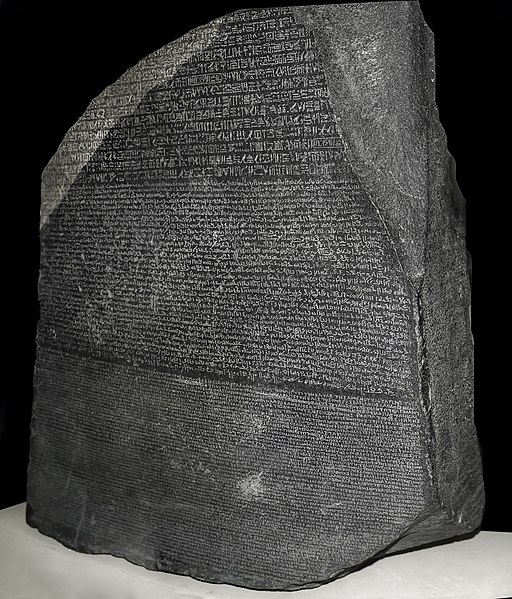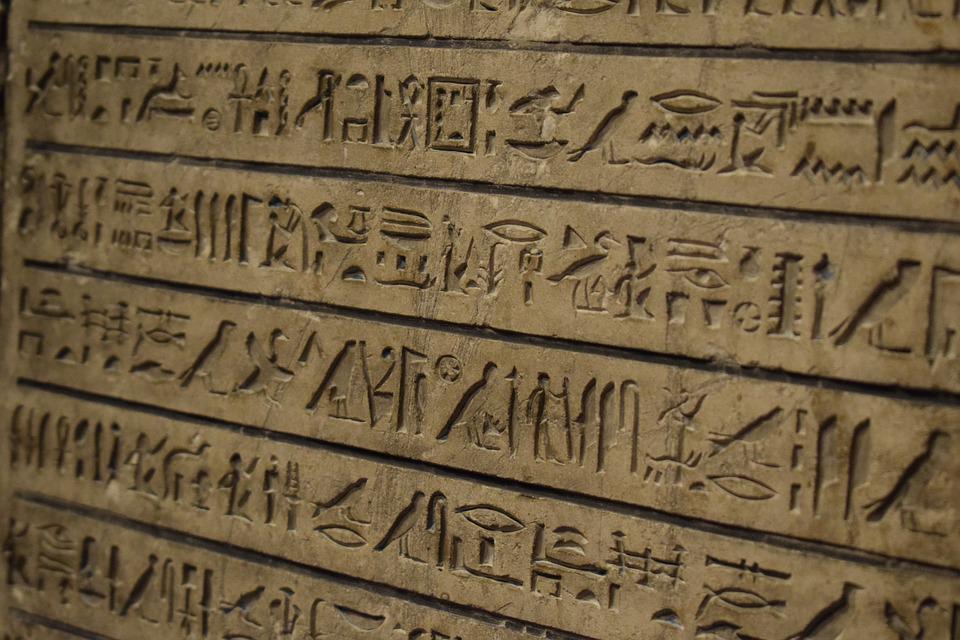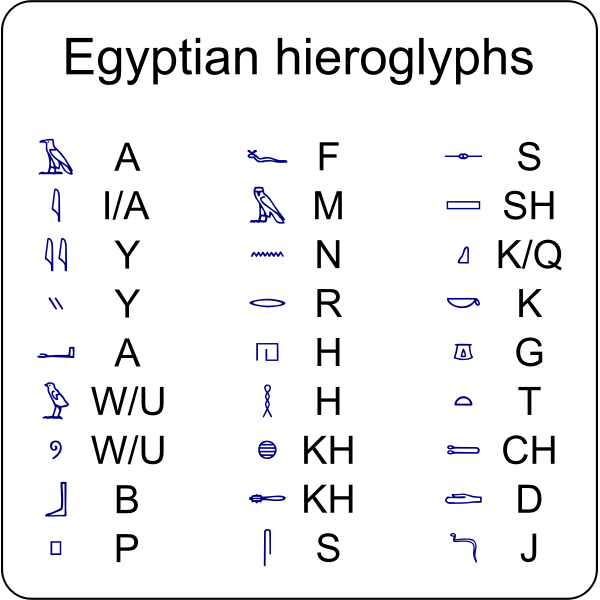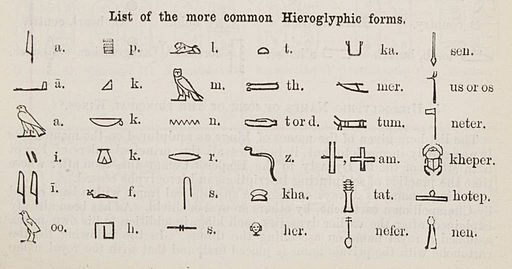What is the Rosetta Stone? Facts to Know
Written by Manya Pandey, a first-year undergraduate student.
It is a greyish, granite-like rock that is inscribed with Egyptian language and symbols from 196 B.C.
Written by Manya Pandey, a first-year undergraduate student.
Over two centuries ago, French troops accidentally found a strange-looking stone at a run-down fort in a place called Rosetta in Egypt.
This peculiar stone that had symbols of an unknown language inscribed onto it later came to be known as the Rosetta Stone. It’s now an ancient artifact of great importance to archaeologists.
Where is it now?
It’s currently on display in the British Museum in London.
More about the Rosetta Stone
It is a greyish, granite-like rock that is inscribed with Egyptian language and symbols from 196 B.C.

The Stone slab measures 112.3 cm in length and is 28.4 cm thick.
Three text is written in three different languages.
- The first 14 lines are written in Egyptian hieroglyphics
- The next 32 lines are in Demotic text (also a form of ancient Egyptian language)
- The last 54 lines are in Ancient Greek
Hieroglyphic writing uses characters in the form of pictures. Each of these signs is called hieroglyphs – and these can be read either as pictures, as symbols for objects, or as symbols for sounds.

Here’s a guide to what each picture means:


The Stone’s importance
The Rosetta stone was believed to provide a gateway to understanding the lost great empire of Egypt, including their legendary pharaohs-ancient Egypt rulers, and pyramids.
To many scholars, it seemed like a way to decipher other Egyptian hieroglyphs — and ancient Egyptian language that used symbols and pictures to write, also commonly called “picture writing”.
But before any of that could be known, the scholars had to translate the language on the stone itself.
So what’s written on it?
The carvings on Rosetta Stone seem to be part of a larger stone slab that was never found but according to scholars who translated the Greek writings on the stone, it contains an official oath of loyalty to the pharaoh (king).
Who cracked the code?
Even though Englishman Thomas Young first identified some of the hieroglyphs on the stone and established the direction in which the symbols should be read, It was a Frenchman named Jean-François Champollion, who could finally decode the language written on the stone in 1822.
Jean-François Champollion had profound knowledge about Egypt and is also known as the founder of Egyptology.
He created alphabets of hieroglyphic characters (ancient Egyptian symbol writing) out of stone carvings after noting that the Egyptian symbols on the last part of the stone resembled sounds in the Coptic language(ancient Egyptian language).
An interesting fact…
The tale goes that after cracking the code he broke into his brother’s office shouting “Je tiens mon affair!” meaning “I’ve got it!” and immediately collapsed to the floor. Believe it or not but it took him five days to recover!
Did you know?
The Rosetta Stone was found in the middle of a war between French soldiers and the Ottoman empire and it travelled through French hands before the British general Tomkins Turner seized it and put it on display at the British Museum
And the Rosetta stone contains a decree written to a 13-year-old Egyptian king named Ptolemy IV of the Ptolemaic dynasty.
I Kid You Not now has a large readership across India and also parts of the world. If you want to write for us, you can submit your story here. You can also apply to become a news anchor. Apply here



Comments